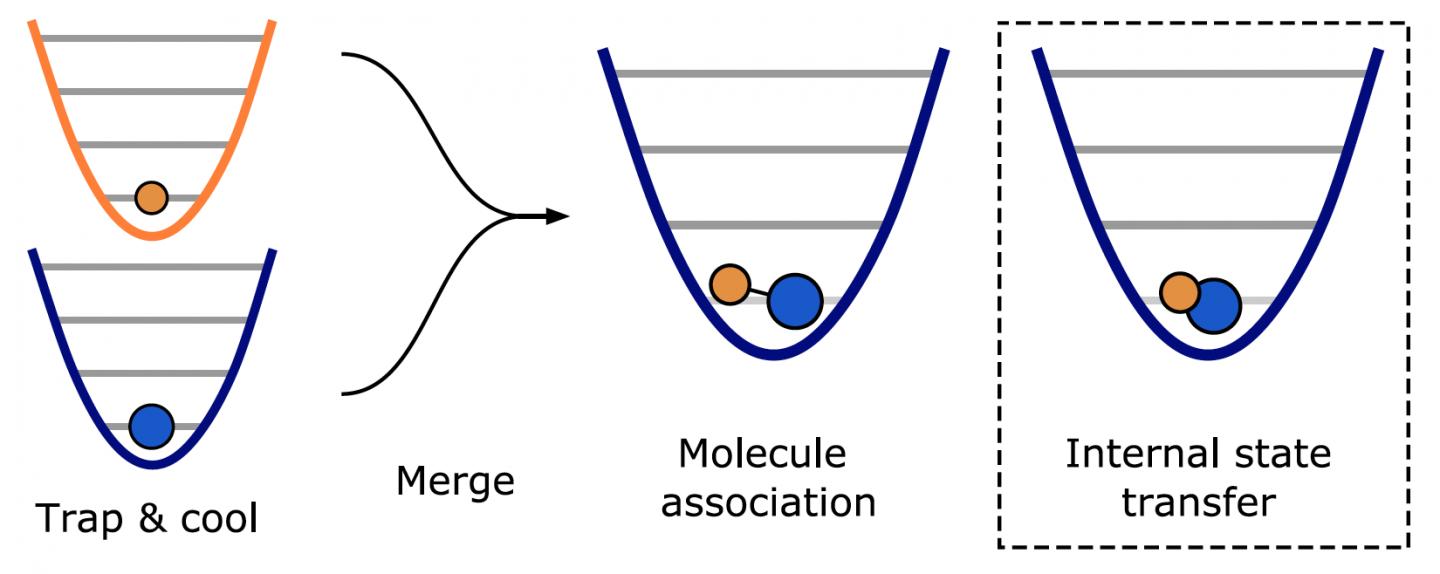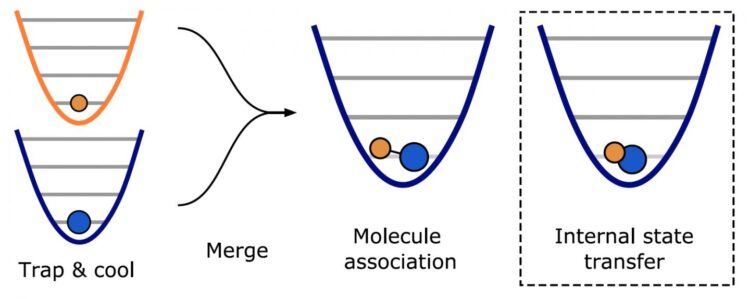Static, long-lasting molecules are key to molecule-based quantum simulation and information processing

Credit: Photo courtesy of the Ni group
In 2018, Kang-Kuen Ni and her lab earned the cover of Science with an impressive feat: They took two individual atoms, a sodium and a cesium, and forged them into a single dipolar molecule, sodium cesium.
Sodium and cesium normally ignore each other in the wild; but in the Ni lab’s carefully calibrated vacuum chamber, she and her team captured each atom using lasers and then forced them to react, a capability that gifted scientists with a new method to study one of the most basic and ubiquitous processes on Earth: the formation of a chemical bond. With Ni’s invention, scientists could not only discover more about our chemical underpinnings, they could start creating bespoke molecules for novel uses like qubits for quantum computers.
But there was one flaw in their original sodium cesium molecule: “That molecule was lost soon after it’s made,” said Ni, the Morris Kahn associate professor of chemistry and chemical biology and of physics. Now, in a new study published in Physics Review Letters, Ni and her team report a new feat: They granted their molecule an extended lifetime of up to almost three and a half seconds–a luxury of time in the quantum realm–by controlling all the degrees of freedom (including its motion) of an individual dipolar molecule for the first time. During those precious seconds, the researchers can maintain the full quantum control necessary for stable qubits, the building blocks for a wide variety of exciting quantum applications.
According to the paper, “These long-lived, fully quantum state-controlled individual dipolar molecules provide a key resource for molecule-based quantum simulation and information processing.” For example, such molecules could accelerate progress toward quantum simulation of new phases of matter (faster than any known computer), high-fidelity quantum information processing, precision measurements, and basic research in the field of cold chemistry (one of Ni’s specialties).
And, by forming obedient molecules in their quantum ground states (basically, their simplest, most pliant form), the researchers created more reliable qubits with electric handles, which, like the magnetic handles of a magnet, allow researchers to interact with them in new ways (for example, with microwaves and electric fields).
Next, the team is working on scaling their process: They plan to assemble not just one molecule from two atoms but force larger collections of atoms to interact and form molecules in parallel. In so doing, they can also start to perform long-range entanglement interactions between molecules, the basis for information transfer in quantum computing.
“With the addition of microwave and electric field control,” said Ni, “molecular qubits for quantum computing applications and simulations that further our understanding of quantum phases of matter are within experimental reach.”
###
Media Contact
Caitlin McDermott-Murphy
[email protected]
Original Source
https:/
Related Journal Article
http://dx.





